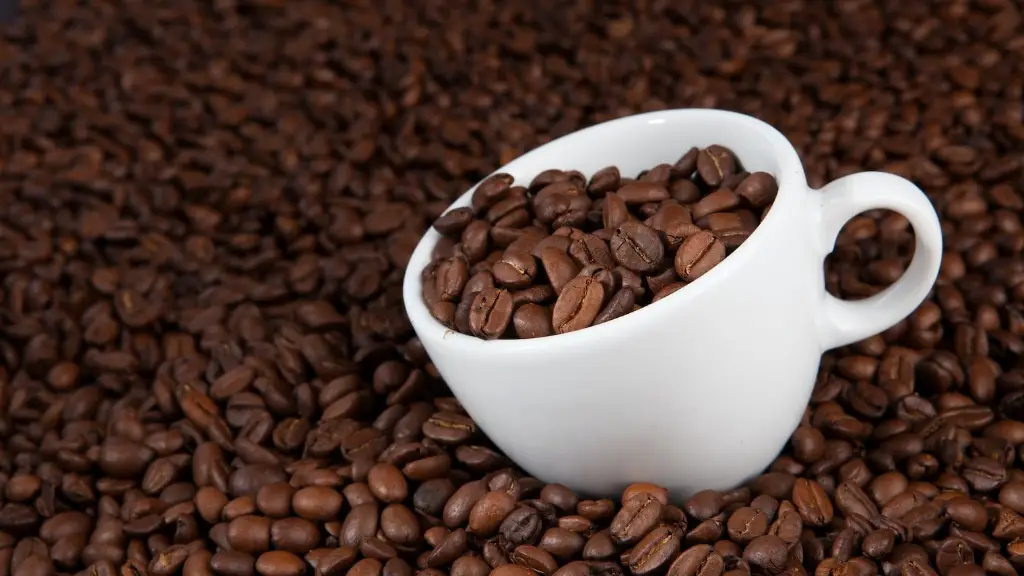Background
The Church of Jesus Christ of Latter-day Saints (LDS) has a strict code of conduct when it comes to food and drink that is followed by its members. This is outlined in the Doctrines & Covenants of the church, which is an ongoing collection of revelations received by the earliest Latter-day Saints. Among other things, the Doctrines & Covenants states that members should abstain from strong drinks, hot drinks (which they take to mean coffee and tea), and all manner of intoxicating liquors, making coffee—along with tea—off limits. These food and beverage restrictions have been a major point of contention over the years, even within the church itself.
Theological Justification
The basis for the restriction was presented by LDS Church President Joseph Smith in 1833, when he defined the “Word of Wisdom” as a code of health laws for members. Smith also asserted that any person who disobeyed these laws would be guilty of a “very great sin.” Since then, the Word of Wisdom has been interpreted as a commandment from God, not just a guideline.
For Latter-day Saints, the Word of Wisdom is seen as an eternal principle and therefore it should be followed in all places, at all times. Church leaders see the purpose of the Word of Wisdom as a healthful practice, not a punishment. LDS Church members are required to abstain from not only coffee and tea, but all alcohol, illicit drugs, and other forms of tobacco in order to remain in good standing with the church.
Health Implications
Given that LDS Church members view the Word of Wisdom in part as a way to promote health, it is worth understanding the health implications of coffee and tea. Caffeine is a trigonelline methylxanthine alkaloid derived from many plants, including the coffee bean and the tea leaf. Studies have found that regular consumption of caffeinated drinks can have both positive and negative health implications, depending on one’s body chemistry, an individual’s susceptibility, and the amount consumed.
On a negative note, it is known that caffeine consumption can interfere with sleep and contribute to anxiety. Additionally, high doses can raise blood pressure and increase the risk of cardiac arrhythmia. On the other hand, moderate consumption of caffeinated drinks has been found to reduce risk of type 2 diabetes, and some research suggests that it might even protect against Parkinson’s disease and liver cancer.
Cultural Significance
For those beyond the religious circles of the LDS Church, coffee and tea have a long history of cultural significance. From their origins in Africa and Asia until the present day, coffee and tea have been consumed as a form of socialization and as a means of de-stressing. By discouraging its members from drinking coffee and tea, the church is seen as limiting its members’ ability to spend time with friends, or to take a mental break.
Additionally, the restriction raises the question of whether non-LDS people who take part in social gatherings with members of the church should abstain from drinking coffee and tea as well. As this can often be in direct violation of their own beliefs, it is no wonder that some outsiders may find the church’s restrictions to be oppressive.
Coffee Alternatives
In an effort to provide its members with some form of relaxation, the LDS Church does point out that there are appropriate options for beverages that members can consume as a replacement for coffee or tea. These options include herbal teas, sparkling and flavored water, kombucha, and naturally-caffeine-free beverages such as juices and smoothies.
Though many find these alternatives to be satisfactory substitutes, many find that the sheer ritual of drinking coffee or tea—from the warm cup to the smell of freshly brewed beans—is hard to replace.
Economic Implications
The restriction of coffee and tea in the LDS Church has also had serious economic implications. Members do not only have to abstain from drinking coffee, they are required to abstain from all coffee-related products. This has resulted in many coffee farmers in Latin America and East Africa—who rely heavily on LDS members for their livelihood—experiencing a decline in their income.
While some farmers have been able to adapt their products to be non-alcoholic, non-caffeinated, or organic, which the church does allow, many still struggle to meet the strict standards required by the church and have been forced to sell their coffee at less than market value in order to remain in business.
Business Opportunities
The restrictions of the LDS Church on coffee and tea have also resulted in a number of business opportunities. Many companies have devised creative options for providing coffee-like beverages without the inclusion of coffee or tea. Companies such as Teeccino and Teebrid On Demand have developed coffee alternatives that are made from a mixture of fruits, nuts, and grains and are touted to contain up to 40% less caffeine than a standard cup of coffee.
These companies have seen their products become increasingly popular not just among Latter-day Saints, but also among individuals who are looking for an alternative to coffee or tea. Additionally, the restrictions of the church have led to the emergence of niche markets for other products such as caffeine-free energy drinks and natural flavorings that make it easier for LDS Church members to enjoy drinks such as iced tea, hot cocoa, and soda.
Social Implications
The restrictions of the LDS Church on coffee and tea have also had social implications, as they have caused many members to feel excluded from social events such as large office meetings and company get-togethers. Many members have also expressed their frustration with having to explain their dietary restrictions to those who host events.
Social occasions such as potlucks and holiday gatherings can be particularly awkward for LDS Church members, as they often involve activities centered around the consumption of coffee and tea. Non-members who are attending these gatherings are also instructed to abstain, which can result in feelings of exclusion.
Conclusion
The restrictions of the LDS Church on coffee and tea are far-reaching and complex, affecting not only the members of the church, but also stakeholders across many industries and the church’s relationships with non-members. Though some may choose to adhere to the church’s rules and comply with their dietary restrictions, ultimately it is up to each individual to decide what choices to make when it comes to their health and wellness.


